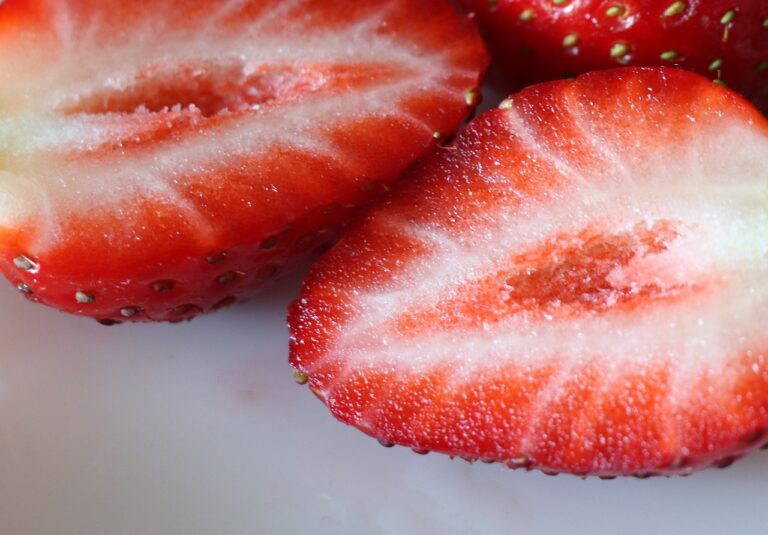The Health Benefits of Mint: Refreshing and Revitalizing: Betbhai9.com whatsapp number, Radhe exchange id, Lotus365 login
betbhai9.com whatsapp number, radhe exchange id, lotus365 login: Mint is a herb that is widely known for its refreshing and revitalizing properties. It is commonly used in various culinary dishes, beverages, and even as a natural remedy for various health issues. In this article, we will explore the numerous health benefits of mint and how it can contribute to your overall well-being.
What is Mint?
Mint is a perennial herb that belongs to the Lamiaceae family, which also includes other popular herbs like basil, rosemary, and thyme. There are several different varieties of mint, with peppermint and spearmint being the most commonly used for culinary and medicinal purposes. Mint has a distinct aroma and flavor, making it a favorite ingredient in teas, desserts, and savory dishes.
Health Benefits of Mint
1. Digestive Aid: Mint has been traditionally used to aid digestion and relieve symptoms of indigestion, bloating, and gas. The menthol in mint helps to relax the muscles in the digestive tract, promoting proper digestion and alleviating discomfort.
2. Relieves Nausea: Mint is known for its soothing properties, making it effective in relieving nausea and vomiting. Sipping on mint tea or chewing on fresh mint leaves can help calm an upset stomach.
3. Improves Oral Health: Mint has natural antimicrobial properties that can help kill bacteria in the mouth and freshen breath. Chewing on mint leaves or using mint-based mouthwash can help prevent bad breath and maintain good oral hygiene.
4. Boosts Immunity: Mint is rich in antioxidants and nutrients like vitamin A and vitamin C, which can help boost the immune system and protect the body against infections and diseases.
5. Alleviates Headaches: The cooling effect of mint can help relieve tension headaches and migraines. Applying a few drops of peppermint oil to the temples or inhaling the aroma of mint can provide quick relief from headache symptoms.
6. Reduces Stress and Anxiety: The aroma of mint has a calming effect on the mind and body, making it a popular choice for aromatherapy and relaxation. Enjoying a cup of mint tea or using mint essential oil in a diffuser can help reduce stress and anxiety.
7. Supports Weight Loss: Mint is a low-calorie herb that can aid in weight loss by promoting digestion and curbing cravings. Adding mint to your meals or drinks can help you feel full and satisfied, making it easier to stick to a healthy diet.
8. Improves Skin Health: Mint has anti-inflammatory properties that can help soothe irritated skin and reduce redness and swelling. Applying crushed mint leaves or mint oil to the skin can help treat acne, rashes, and other skin conditions.
9. Enhances Brain Function: The scent of mint has been shown to improve cognitive function, memory, and alertness. Inhaling mint oil or drinking mint tea can help enhance focus and concentration.
10. Aids Respiratory Health: Mint is a natural decongestant that can help clear the respiratory tract and relieve symptoms of cough, cold, and allergies. Drinking mint tea or inhaling mint vapor can help ease breathing and soothe a sore throat.
11. Relieves Menstrual Cramps: The muscle-relaxing properties of mint can help alleviate menstrual cramps and discomfort. Drinking mint tea or massaging mint oil on the abdomen can help reduce pain and inflammation during menstruation.
12. Detoxifies the Body: Mint has diuretic properties that can help flush out toxins from the body and promote kidney health. Drinking mint-infused water or teas can help cleanse the system and improve overall detoxification.
How to Incorporate Mint into Your Diet
There are several ways to enjoy the health benefits of mint in your daily diet:
1. Add fresh mint leaves to salads, smoothies, and cocktails for a burst of flavor.
2. Brew mint tea by steeping fresh or dried mint leaves in hot water for a soothing drink.
3. Use mint leaves as a garnish for dishes or desserts to enhance presentation and taste.
4. Infuse water with mint leaves, cucumber, and lemon for a refreshing and hydrating beverage.
5. Mix chopped mint leaves with yogurt, garlic, and cucumber to make a delicious tzatziki sauce.
6. Blend mint leaves with fruits like watermelon and pineapple for a refreshing summer smoothie.
Incorporating mint into your diet can not only enhance the flavor of your meals but also provide numerous health benefits to support your overall well-being.
FAQs
1. Is mint safe for everyone to consume?
Mint is generally safe for most people when consumed in moderate amounts. However, individuals with certain medical conditions like gastroesophageal reflux disease (GERD) or allergies to mint should consult a healthcare professional before adding mint to their diet.
2. Can I use mint essential oil for aromatherapy?
Yes, mint essential oil can be used for aromatherapy to promote relaxation, improve focus, and alleviate headaches. It is important to dilute mint oil with a carrier oil before applying it to the skin or using it in a diffuser to avoid skin irritation or respiratory issues.
3. How can I grow mint at home?
Mint is a hardy herb that thrives in moist soil and partial shade. You can easily grow mint at home in a pot or garden bed by planting mint cuttings or seeds. Make sure to trim the mint plant regularly to prevent it from spreading and taking over your garden.
4. Are there any side effects of consuming too much mint?
Consuming large amounts of mint, especially in the form of supplements or essential oils, can cause side effects like heartburn, headaches, and allergic reactions in some individuals. It is best to consume mint in moderation and consult a healthcare provider if you experience any adverse effects.
In conclusion, mint is not only a versatile herb that can enhance the flavor of your meals but also a powerful ally in promoting your health and well-being. By incorporating mint into your diet and daily routine, you can enjoy its refreshing and revitalizing benefits and live a healthier and happier life.







